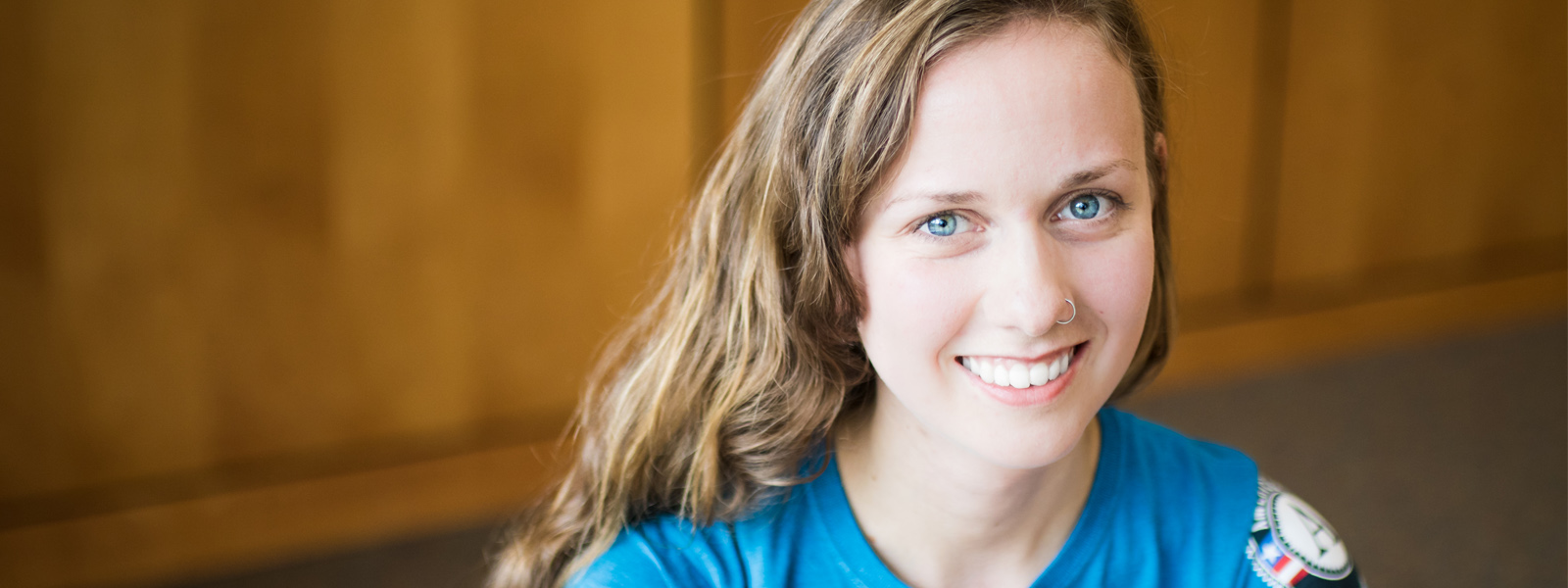High standards
By: Kendra Bragg Harding, ArtistCorps Member
It’s amazing when you find something that works with your group of learners. You spend hours trying new things, looking for new ideas, and hoping for the best. Then something finally gets their attention for more than a few seconds and you're floored. You wonder why you weren't doing that all along. Sometimes, though, it's not what you're doing but what you're thinking that makes all the difference.
In my case, part of why I wasn't feeling successful in the classroom is because I had convinced myself that I didn't know how to instruct these kids. I came into my service with the wrong mindset. Sure, I was right in thinking that I wasn't going to change the world or be the savior of the downtrodden, but I had a huge mental block that was killing my ability to engage my learners in our sessions. I was decent with preschool and pre-k, but after a few months I started feeling that my lesson plans with grade school were stagnating. My internal mantra, whether I realized it or not, had become, “I'm not good at this and I'm failing these kids.” While I didn't lose my desire to serve, I became very nervous every time I was in the classroom.
I didn't realize that I'd become fearful of judgment from my kids, fellow instructors, site supervisors, and basically everyone. I was terrified of messing things up, and so I was approaching a lot of my days feeling doomed. Consequently, there was a period of time when I wasn't at my best. I fumbled through lessons. I was nervous in my interactions with my colleagues. Every time someone addressed me, I waited for the criticism to come (though usually people had good things to say). I started getting discouraged.
Then I started reading our latest book club book “Engaging Students With Poverty In Mind” by Eric Jensen. In the book, he gives idea after idea of how to engage students in different ways, and asks instructors to take a long, hard look at what they're doing. I realized that part of my feelings of inadequacy stemmed from repeatedly trying things that weren’t working with my group of learners. Each group is different, and what interests one may bore another.
So I started changing little things. Instead of clinging to my lesson plans like a life raft in a sea of boredom and disinterest, I decided to start scrapping things that didn't work and rearranging activities to suit each group's needs. My lesson plans became guidelines that, if they worked, I used them, and if they didn’t, I readjusted. I realized that I had taken a formulaic approach to a situation that required much more fluidity. One basic framework doesn’t work with every group. I started creating backup plans for my activities. If one song, or game, or activity didn’t work, then I’d have to try other things until something clicked. I learned pretty quickly that my grade school group needed a focus exercise to start our time rather than an energizer. I realized they needed less time feeling lectured and more interaction time. I realized we needed more hands-on activities and visuals. They needed to feel like they owned the process.
For my preschoolers, I realized that movement was key in almost everything, and that movement could be used as a focusing tool. I now use some of my songs as a way of letting them move and have fun, but also as a way of refocusing them when things get out of hand. I also realized that even if I use the same visual aids more than once, they never get tired of them. I was throwing too much at them in an attempt to keep them interested, but that wasn’t what they needed. They were missing concepts because I was focused too much on having variety, when they love looking at the same pictures over and over, or singing the same songs over and over. It’s how they learn and internalize concepts.
I realized that pre-k needed more autonomy. They needed activities that let them choose, lead, and own their learning. I started coming up with more music games for us to play, and letting them choose what order we do things in some days. I started letting them help lead our rehearsals for our presentations. They’re big kids and they can have big responsibilities now! Letting them feel in control of things has become so important in my service with them.
Finally, started being nicer to myself. I stopped expecting to know everything and started allowing myself to ask experienced teachers for recommendations. I started spending time really trying to think like a grade school kid again when I plan things. And things started improving. Concepts stuck better. Kids are enjoying things more. I'm enjoying things more.
I’m a rookie at this and I’ve got so much to learn, but I feel like I’m steadily improving from week to week. I’m looking at my failures and asking myself how I can do better. I’m investing in my own growth in order to better invest in the growth of my learners, and I am beginning to see payoff for it. Most of all, I’m letting myself not be perfect. Yes, I have high standards for myself, and that’s good. I just have stopped expecting to be a flawless expert at something I’ve just started doing. It’s funny, though. The moment I stopped expecting myself to be great, I started getting better. Interesting how that works, isn’t it?
February 16, 2016






